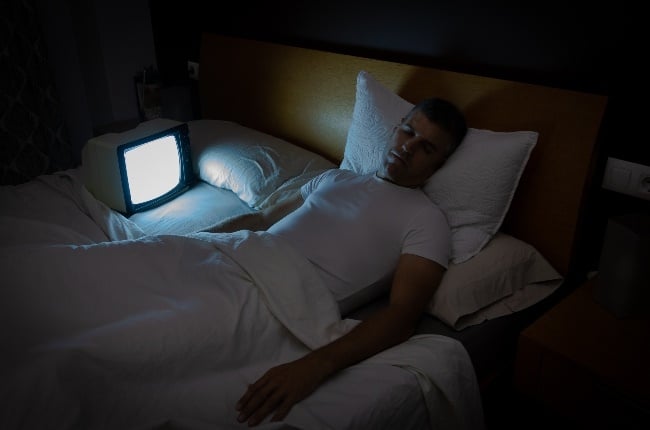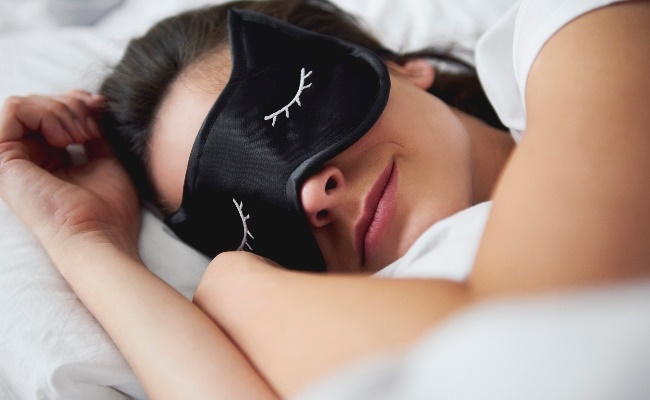
Not long ago, I had a series of uncanny dreams that explicitly referred to an upcoming event I was feeling anxious about. I was raised as a vegetarian, and for the first two and-a-half decades of my life, I didn’t – to the best of my knowledge – consume a single morsel of meat or fish.
I held my breath when I walked past meaty restaurants. In high school, I made a boyfriend brush his teeth after eating meat in front of me. But after spending nearly a quarter-century carefully avoiding meat, I decided I’d had enough. I’d never had any real ideological justification for my diet; I didn’t have any particular affinity with animals – my diet was based on nothing more than an ingrained habit.
I was sick of dealing with an annoying restriction when I travelled and I was tired of inconveniencing friends and hosts. Plus, I was curious about what I might be missing.
My friends planned a Meat Party to welcome me to the omnivorous fold. Fish tacos, they promised, would provide a gentle entrée into the world of meat; the mild fishy taste would be disguised by stronger flavours such as salsa and broccoli.
I gave myself one month to mentally prepare, and in the run-up to the big day I had three vivid dreams about eating meat. In one I was at a buffet. The main dish was a sort of rubbery chicken. I decided to eat it and made it through one or two pieces. I then announced to the room that I was eating meat. No one was impressed.
From each dream, I awoke feeling a little more prepared, a little more certain that I was ready. In real life when the day arrived when I finally lifted that first bite of fish tacos to my mouth, I was apprehensive and slightly grossed out. But then I swallowed, and the strongest feeling I had was déjà vu.
What I experienced ties in nicely with the threat simulation theory of dreaming devised by Antti Revonsuo in the 1990s. According to the revered Finnish cognitive neuroscientist, dreams evolved to serve an important psychological function: they let us work through our anxieties in a low-risk environment, helping us practise for stressful events and cope with grief and trauma. So in short, they’re your brain’s way of preparing you for life.
Fear, helplessness, anxiety, guilt – most of the emotions we experience in dreams are negative. But why would our minds subject us to something so consistently unpleasant?
By looking back to the time of our ancient ancestors, Revonsuo reasoned that these dreams helped them mentally prepare as they slept. It might even have given them a psychological advantage when it came to the dangerous situations they’d have to face when they awoke.
Early human life was a minefield of wild animals, unpredictable terrain and hostile fellow humans, so any edge might improve a person’s chances of survival.
While in modern life the daily challenges we face are usually much less risky, our dreams are still fraught with anxiety. The exam dream, in which a dreamer finds themself woefully unprepared for an important test, is a common recurring theme – for instance, you arrive for your exam and discover you didn’t study the correct work. Or you’re writing a test and look down and realise you’re not wearing pants.
Even if it’s been years since you left school or university, these dreams continue to crop up – and it’s usually when you’re worried about something else, like a looming deadline or the success of a project.
Mulling over these dramatic worstcase scenarios in the light of day forces you to realise how unlikely, even ridiculous, they are. And doing this saps them of their power to terrify. You awake with a sigh of relief – no matter how unprepared you feel for this meeting, at least you won’t turn up naked. Whatever your boss thinks of your presentation, he’s not going to send it to all your exes for comment.
In 2014 researchers from the Sorbonne university in France, led by neurologist Isabelle Arnulf, contacted thousands of aspiring doctors on the day they were scheduled to take their medical school entrance exam. Nearly three-quarters of the students said they’d dreamt about the exam at least once over the course of the semester, and almost all of those dreams had been nightmares: they got lost on their way to the exam, found it impossible to decipher the test questions, or realised they were writing in invisible ink.
When Arnulf compared students’ dreaming patterns to their grades, she discovered a striking relationship: those who dreamed more often about the test performed better in real life. In fact, the top-five students had all encountered some exam-related obstacle in their dreams, like sleeping through their alarm or running out of time.
“Negative anticipation may serve to optimize daytime performance, as in how a chess player imagines all possible moves, particularly the moves leading to a loss, before selecting and playing the better move,” she wrote.
For millennia people have written and wondered about dreams of flying and of falling, of being naked in public and of losing their teeth.
The universality of these dream motifs suggests that they serve some deep-seated evolutionary purpose. Pioneering Austrian psychologist Sigmund Freud suggested that dreams of flying were rooted in childhood memories of being rocked, while Swiss psychoanalyst Carl Jung connected them to conquering challenges in real life.
German psychiatrist Michael Schredl found that dreams of flying “reflect positive emotional states experienced in waking life”.
Meanwhile, an American study showed that as many as 21% of undergraduates had dreamt of their teeth falling out.
According to Bar Hedya, an Ancient Jewish mystic, dreaming of losing one’s teeth represented a warning that a relative would soon die. Freud, predictably, saw it as a symbol for castration.
My favourite psychoanalytic take, proposed by a Hungarian therapist named Sándor Lorand, is that it represents a wish to return to the toothless, sexless state of babyhood.
Although scientists have conceded that it’s useless to try to interpret an isolated element of a dream without context on the dreamer’s life and dreaming patterns, the internet teems with websites providing amateur dream analysis.
Well-trafficked dream-dictionary sites tell me that someone who loses their teeth in a dream fears ageing, has misspoken or has “some hardship in life”.
In 1984, a pair of psychologists conducted an empirical study on the topic, rounding up 14 people who had recurrent nightmares of losing their teeth – “some disappeared, some were pulled out, some were knocked out, some crumpled” – and 14 who had recurrent dreams of flying.
They found minor personality differences between the two groups: the tooth-loss group scored higher on scales of anxiety and depression. But their main finding was anticlimactic: members of the teeth-dreaming group spent more of their waking time thinking about teeth.
Still, their hypothesis about the mechanism underlying this common dream is worth considering.
“One possible explanation is that the dream about loss of teeth represents an unconscious, historical vestige or archetype of a time when teeth played a significant role in the lives of early people,” they suggested. “The actual loss of one’s teeth may have portended death due to resulting changes in diet and other difficulties associated with eating or defence. For the present group of dreamers, it seems possible that psychological conditions of helplessness or loss of control may trigger the vestigial, archetypal dream of teeth-loss.”
BUT there can be little doubt of the important role that dreams play in helping us cope with universal life-cycle struggles, such as coming to terms with death and divorce. The mourning process is messy and individual, but for most people, the work of grieving continues in sleep. In vivid, unforgettable dreams, the dead come back to us.
In a 2014 study of nearly 300 mourners at a hospice centre in upstate New York, 58% could recall at least one dream about the person who’d died. Although the dreams weren’t always pleasant, they usually provided some measure of comfort – they helped mourners accept their loss and led to heightened feelings of spirituality and an overall sense of wellbeing.
After psychologist Patricia Garfield’s father died, she decided to interview other women who’d recently lost someone important, and found that she could match their dreams to different phases of mourning.
At first, the departed seemed to come back to life, wanting to talk about the circumstances of their deaths. These “alive-again” dreams were disturbing, inflaming the survivor’s irrational sense of guilt over “allowing” the person to pass away.
Six weeks after his dad died, American novelist Philip Roth dreamed that his father returned to Earth, angry that he’d been buried in the wrong outfit. “All that peered out from the shroud was the displeasure in his dead face,” Roth wrote in his memoir, Patrimony. The dreamer might feel resentful that the deceased has fooled them or caused them pain, or the dream might be pleasant in the moment but lead to a keen sense of loss upon waking.
Dreams like these, though painful, can help the mourner understand that the deceased is really gone.
During the next phase, the departed might reappear and say goodbye or set off on some obscure journey. One widower in a study of Garfield’s dreamed of driving to the airport with his wife.
When the couple arrived, she went on ahead of him, waved goodbye, and told him that he’d join her later. The man interpreted his dream as permission to engage in life again and credited it with allowing him to reintegrate with the world and even remarry.
In the final stages – once the mourner has accepted the loss – they might experience pleasant dreams in which the deceased is young and well again, or offers words of comfort and advice.
Dreams can also help us deal with the heartache of a failed relationship. From the late 1970s through the mid-2000s, psychologist Rosalind Cartwright carried out a series of studies on new divorcees. For one experiment she invited 60 people who were in the midst of a divorce to spend three nights in a sleep lab on two occasions – once at the beginning of the divorce process, and again 12 months later.
By the end of the year, those who’d dreamt about their partners at the outset seemed happier; their moods were more positive, their finances more stable, even their love lives were more satisfying. Dreaming about the divorce, it seemed, had helped them get over it. In another study she analysed the dreams of divorcees, trying to pinpoint what made some dreams more therapeutic than others.
This time, she tracked the dreams of 29 women through the first five months of their separations.
The ones who were on the road to recovery, she found, tended to interact with their dream-exes in a more active, assertive fashion.
One woman saw her ex-husband embarrassing himself at a party and felt relieved not to be with him. Another expressed her resentment toward her ex and his new girlfriend.
On the other hand, the dreams of the other women who by the end of the study remained mired in depression and unable to move on tended to be simple and unemotional, with the dreamer occupying a more passive role.
In one characteristic dream, a woman stood by silently as her ex took his new love interest on a date.
That’s why even though dreams about grief or anxiety may be painful, we should embrace them, knowing they’re trying to help us.
By tracking them over time, we can draw hope from signs that we’re on the mend, such as when a pattern changes or when we start to assert ourselves more.
“Watch for any dream image that reflects improved protection and increased control,” Garfield advises. “Turn it over in your thoughts and feelings, and absorb its power to heal.”
THIS IS AN EDITED EXTRACT FROM WHY WE DREAM: THE SCIENCE, CREATIVITY AND TRANSFORMATIVE POWER OF DREAMS BY ALICE ROBB, PUBLISHED BY PICADOR, R235 FROM TAKEALOT.COM (EBOOK). PRICE CORRECT AT THE TIME OF GOING TO PRINT AND SUBJECT TO CHANGE WITHOUT NOTICE.




 Publications
Publications
 Partners
Partners




















